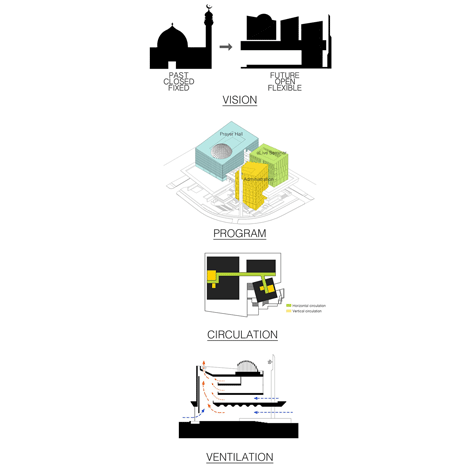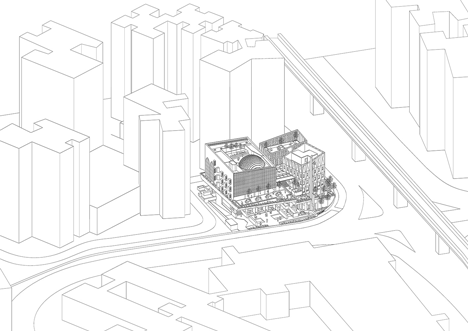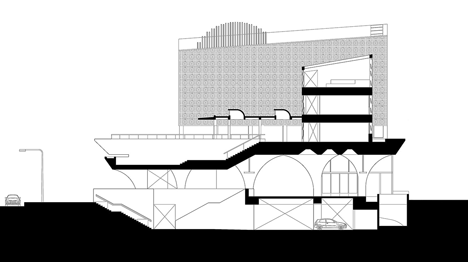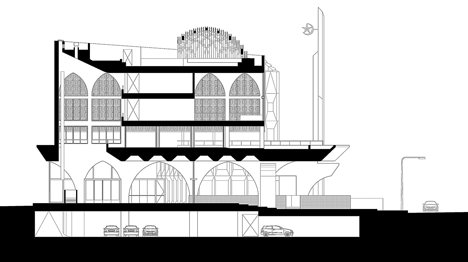Singapore mosque by Formwerkz Architects features latticework based on Islamic patterns
Singapore studio Formwerkz Architects took references from traditional Islamic design to create the intricately patterned and moulded surfaces of this mosque (+ slideshow).
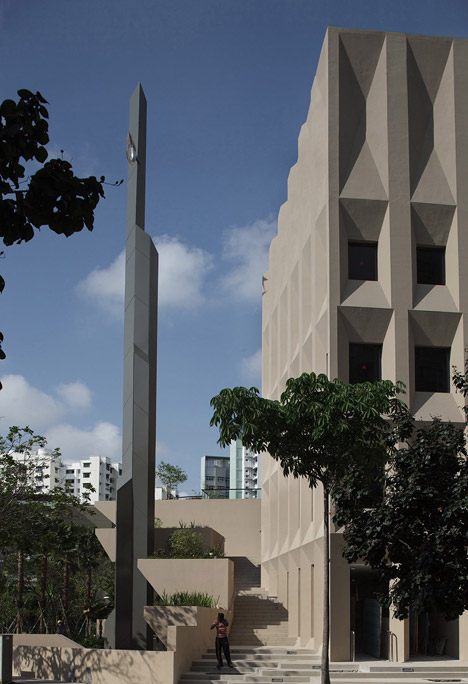
The Al-Islah Mosque by Formwerkz Architects caters for the Muslim population of Punggol, a densely populated neighbourhood in north-east Singapore.
The area is currently undergoing significant redevelopment, with the Singapore Institute of Technology due to relocate to a new campus near a waterfront park by LOOK Architects and high-rise housing being erected to accommodate the rising population.
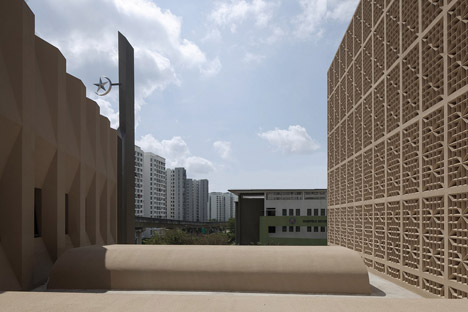
The mosque is segmented into three volumes – a prayer hall, an Islamic education centre and an administration block – to give the structure a more domestic scale within the built-up area.
These blocks are linked by a series of elevated and landscaped terraces that are open to the public.
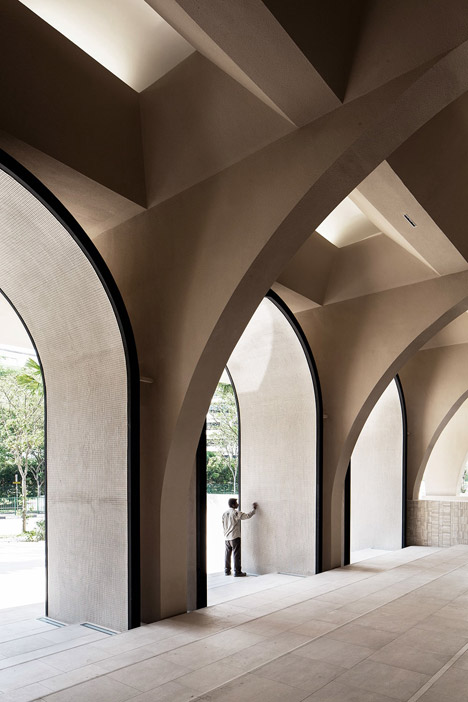
"The new mosque aspires to be a model of openness, reflective of contemporary Islamic aspirations in Singapore," said architect Alan Tay. "This ambition for the openness posed much challenges in view of the tight site and its proximity to the neighbouring flats."
"Physical porosity allows a visual connection to the neighbourhood and extends its spatial field beyond its boundary but poses the issues of sanctity and threshold expected of a mosque."
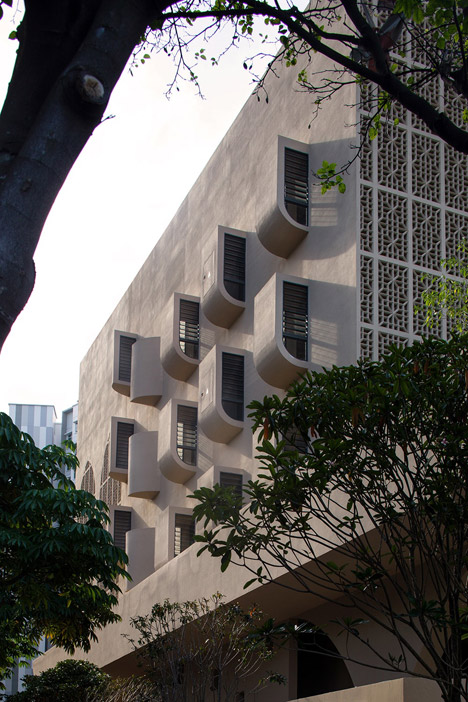
Latticed screens form walls and the dome over the prayer hall, to enhance the feeling openness while also providing ventilation and natural lighting for the spaces within.
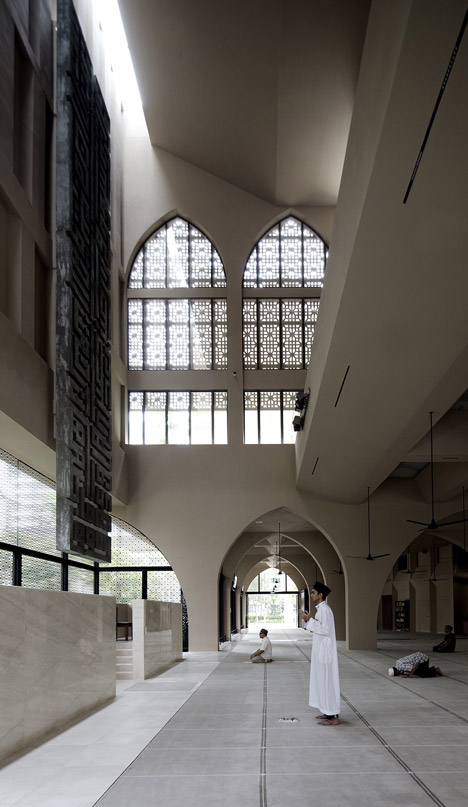
The reinforced concrete structures are covered with sand-coloured textured paint. Elements such as the dome, arched doorways and a slender minaret are picked out in dark grey paintwork.
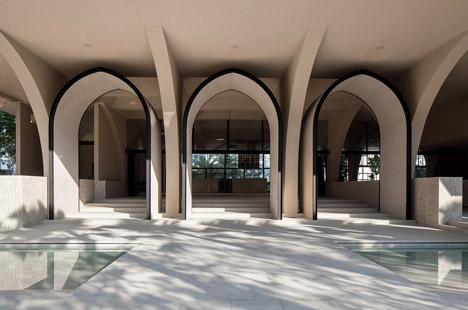
"The basic arabesque pattern and arches are influenced by traditional Islamic forms," explained studio co-founder Alan Tay. "The arches are designed to allow a wider span in the prayer hall and cantilever in the main entrance foyer."
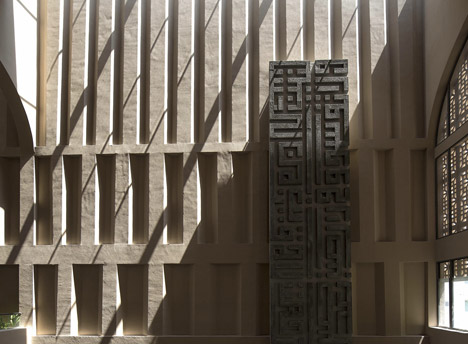
The 3,700-square-metre mosque can accommodate up to 4,500 worshippers at any one time, with service areas including an underground car park all designed to be used as extensions of a domed prayer hall.
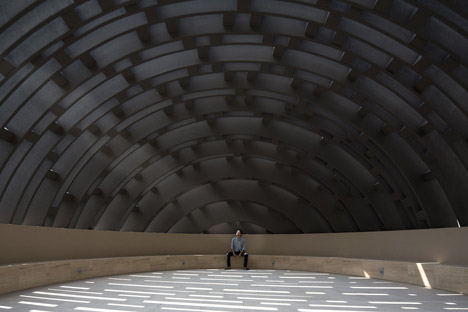
The prayer hall has open sides that allow the congregation to spill into adjacent spaces during peak worship times. These areas are shielded from the weather by a large overhanging canopy.
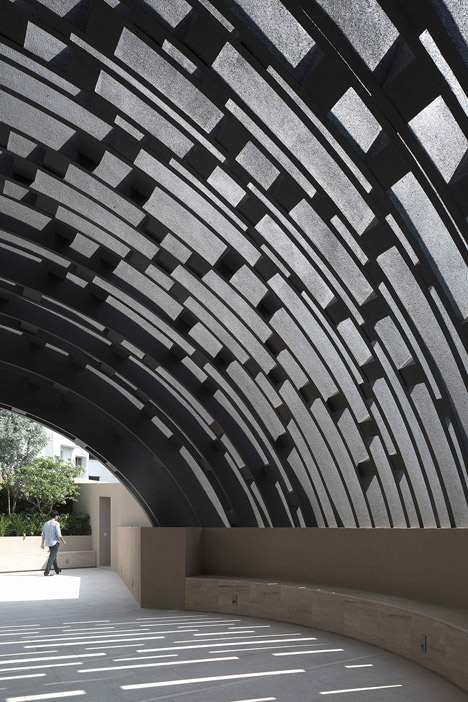
"In peak periods, most of the floor space – with the exception of bathrooms, admin space and service rooms – is utilised for prayer," Tay told Dezeen. "Corridors, classrooms, roof terraces and even the basement car park double up as prayer spaces."
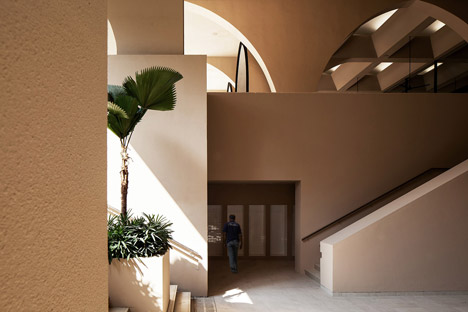
"With no boundary walls and minimum enclosing wall, the worship hall is visually and physically accessible on all sides, blurring the distinction between the mosque premise and the street," he added.
Related content: more mosque architecture
"Collectively, the blocks with the minaret exude a dignified and subliminal presence while embracing the community spirit."
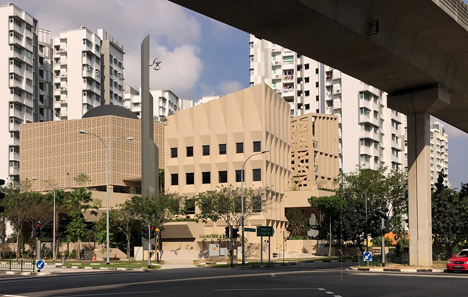
Formwerkz Architects was founded by Alan Tay, Berlin Lee and Seetoh Kum Loon in 1998. Past projects include a house-shaped extension that cantilevers over a swimming pool and a concrete residence covered with plants.
Photography is by Albert Lim and Fabian Ong.
Project credits:
Architects: Formwerkz Architects
Project team: Alan Tay, Seetoh Kum Loon, Iskandar Idris, Stephen Lim, Liu Zheng Hao, April Tan, Makhasiri Khanoei, Livina Rahmayanti, Alicia Lazzonroni, Rafael Aronso, Foo Yuet Yee, Fabian Ong, Tan Shuat Zhen, Qistina, Wang Chen Fong
Client: MUIS
Project manager: CPG Construction Professionals
C&S engineer: AECOM Singapore
M&E engineer: AECOM Singapore
Landscape architect : Salad Dressing
Quantity surveyor: Surbana International Consultants
Builder: GTMS
